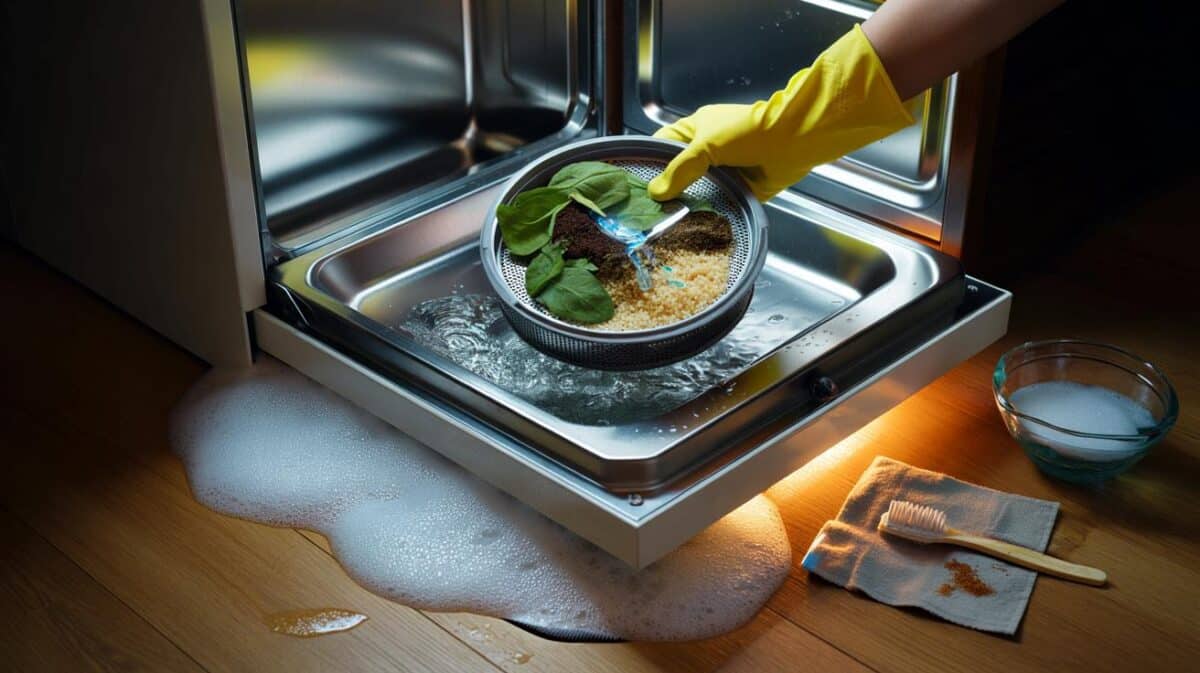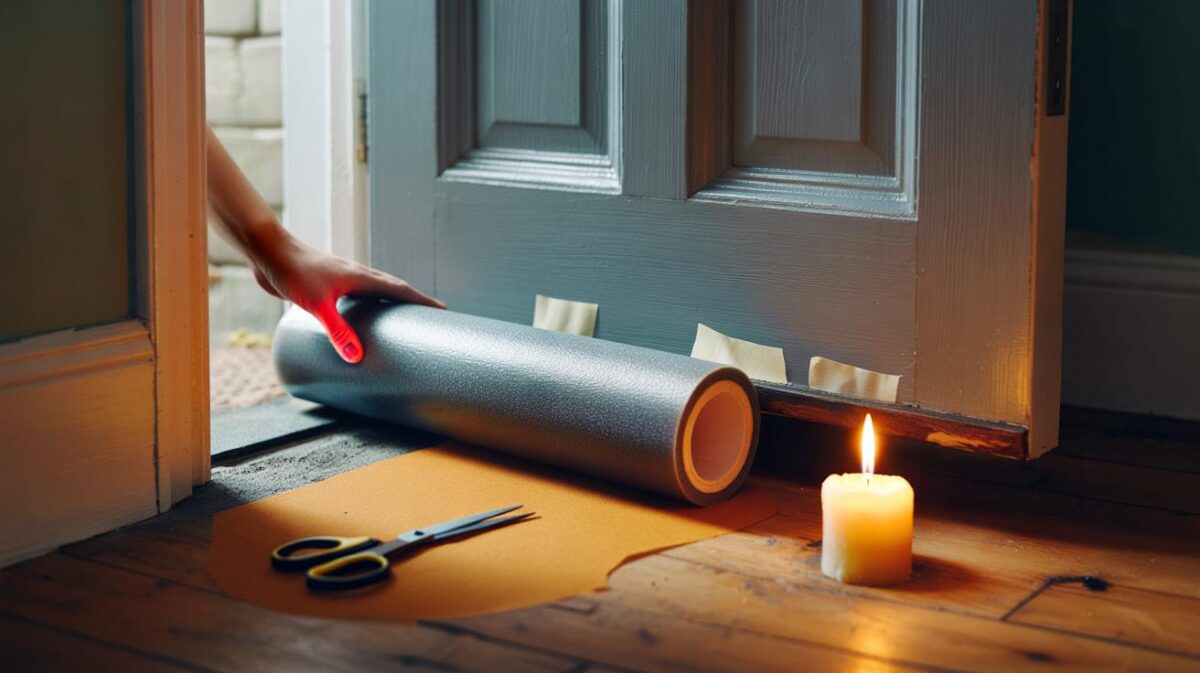Kettles steamed, windows fogged, and somewhere in the cupboard under the stairs a tired boiler cleared its throat like a pub singer at closing time. The radiators were warm-ish, then not. A clank, a pause, a sulk. When the engineer finally showed up, he swirled a glass of system water, held it to the light, and raised an eyebrow. It looked like black tea.
He didn’t pitch a new boiler. He talked about filters, and flushing out the sludge that creeps through pipework like silt in a river. Small money, long impact, less drama. It wasn’t glamorous, but it was honest. He left behind a quieter system and a plan scribbled on the back of the invoice. The plan felt almost boring. That’s the point.
The cure cost less than your weekly shop.
Dirty water, tired boilers
Here’s the unvarnished truth from British plant rooms: boilers rarely “just fail”. They’re worn down by filthy water. Iron oxide flakes off radiators, turns into black magnetite, and spins round the loop like sandpaper. Pumps strain. Heat exchangers scale up. Your boiler works harder for the same warmth and complains with noise, short cycles, and those maddening error codes that arrive just as guests do.
We’ve all had that moment where the heating stutters on a Sunday, and you start pricing new boilers while wearing two jumpers. A Nottingham couple I met last winter told me they were set on replacing a 9‑year‑old combi. The engineer tested their system water, fitted a magnetic filter, and did a chemical flush. Two hours, a bucket of black sludge, and the house felt new. *It felt like throwing money into the radiators, but it worked.*
Why does that small intervention land such a big punch? Because water is the medium that carries heat, and its condition decides efficiency. Clean water glides. Dirty water drags. A magnetic filter captures metal particles before they sandblast your pump. A scaled heat exchanger can need extra gas to reach the same temperature, while sludge in radiators blocks hot spots and tricks the boiler into cycling. **Dirty water kills boilers.** Clean it, and everything breathes easier.
Filters and flushing: the small investment that changes everything
Think of a magnetic filter as a sieve for your central heating. It sits on the return pipe near the boiler and traps iron sludge before it re-enters the heart of the system. The filter itself can cost £80–£200, installation extra if you need pipework. Pair that with a bottle of inhibitor chemical—about £20–£30—to slow corrosion. Add a one-off flush every few years, either chemical or power-assisted, and you’ve built a defence that most people never see, yet feel every day in quieter radiators and steadier hot water.
The method is simple in principle, and tidy when done by someone who does it weekly. An engineer isolates the filter, opens it, and wipes down the magnetic core—black sludge comes away like soot. They’ll dose inhibitor into the system, bleed stubborn radiators, and balance the flows so heat reaches the cold rooms. Powerflushing, if needed, circulates cleaning chemicals to lift years of grime and then rinses until the water runs clear. Let the boiler stroll, not sprint.
Let’s be honest: nobody actually does this every day. The hack is to link it to things you already do: the annual service, the change to heating season, the moment you notice one radiator stay chilly at the bottom. Many warranties require some kind of water treatment, so that tiny filter and a dated note about inhibitor can keep your paperwork happy too. **It’s not just comfort; it’s compliance with a side of calm.**
“People think they need a new boiler,” a veteran Gas Safe engineer told me, “but what they often need is cleaner water and a catchment for the bits doing the damage.”
- Magnetic filter: fit once, clean at service
- Inhibitor: check every 1–2 years, top up as needed
- Chemical flush: when radiators have cold patches or after major works
- Powerflush: if sludge is heavy or parts keep failing
- Balance radiators: small valves, big difference in room comfort
The numbers behind the feeling
No one wants to sell you a new boiler in a cost-of-living crunch. A fair price for a filter plus fitting sits somewhere between a pub lunch and a city weekend, depending on pipe access. A chemical flush is often in the £100–£200 range; a full powerflush in a typical British semi might land between £300–£600. That sounds chunky until you price a new boiler, which often starts north of £2,000 with installation and climbs fast.
There’s also the soft economy of fewer breakdowns. Pumps last longer in clean water. Heat exchangers don’t scale up as quickly. Gas use becomes steadier as the boiler stops short-cycling and spends more time in its sweet spot. I’ve heard from readers who simply noticed the house heat up evenly again, like rediscovering a radiator behind the sofa. It’s not magic. It’s the absence of gunk.
Why don’t more people do it? Filters aren’t sexy, and flushing sounds like bother. There’s also a myth that modern boilers “just cope” because they modulate and hide the symptoms. They cope until they don’t. Sludge doesn’t care how smart your boiler is; it just obeys physics. Keep those particles out and the clever tech stays clever. Ignore it, and your clever tech gets cranky.
Small rituals, longer life
You don’t need to become a heating nerd. Snap a photo of the manometer once a season so you know your usual pressure. Bleed the noisiest radiator at the first sign of trapped air. Ask your engineer to test inhibitor levels at the annual service. If you moved into a place with unknown history, put “fit magnetic filter” on the list right after sorting that loose door handle. Little rituals win winters.
Common mistakes? Waiting until something fails, treating the filter like a one-time gadget, or assuming shiny radiators mean clean water. Noise is a clue. Cold bottoms on radiators are a clue. A pump that feels hot to the touch and sounds like it’s grinding coffee beans is a neon sign. None of this makes you a bad homeowner. Heating systems are invisible when they work, and British homes are full of other priorities. You’re allowed to forget. Then fix.
There’s one more human bit that matters: coordination. If you’re swapping a radiator or changing valves, that’s the perfect moment to flush and fit the filter. If you’re changing the boiler, ask for a system cleanse and protection as written line items. Your future winter self will thank you.
“Clean system water is like fresh oil in a car. You don’t see it, but you feel it every mile.”
- Book a water test before big heating work
- Fit a magnetic filter on the return pipe near the boiler
- Record inhibitor date on a sticker or in your phone
- Clean the filter during the annual service
- Rebalance radiators after any flush or radiator change
A warmer way to think about maintenance
This all circles back to one idea: protection is cheaper than rescue. A little device on a pipe and a few litres of clean water add up to fewer anxious mornings, fewer late-night error codes, and more heat for the fuel you already buy. The best part is how unremarkable it feels once done. The boiler stops being the main character again, and life shrugs back to normal.
Your neighbour might not notice the filter you fitted. They’ll notice you stop complaining about the downstairs radiators. They’ll notice you’re not Googling “new boiler cost” at midnight. Share that feeling. Share the easy wins. The next frost is coming, as sure as frost always does. Make sure your boiler greets it with a low hum and a quiet grin.
| Key points | Detail | Reader Interest |
|---|---|---|
| Magnetic filters catch sludge | Fit on the return pipe; clean at service; costs typically £80–£200 plus fitting | Simple device, visible result in quieter, steadier heating |
| Flushing resets the system | Chemical or power-assisted; removes magnetite and scale; pairs well with new radiators or boiler | A one-off that feels like new heating without buying a new boiler |
| Small habits, big lifespan | Test inhibitor, bleed, balance, log dates; protect warranties | Confidence and fewer breakdowns across cold snaps |
FAQ :
- Do I need a magnetic filter if my boiler is new?Yes, because corrosion starts on day one. The filter protects the pump and heat exchanger from early wear.
- How often should a system be flushed?When there are cold patches, noisy pumps, or after messy pipework changes. Many homes only need a chemical cleanse every few years.
- Is this a DIY job?Bleeding radiators and checking pressure can be. Fitting filters and flushing should be done by a Gas Safe professional.
- Will this lower my gas bill?Cleaner water helps the boiler run in its efficient range and stops short-cycling. The result is steadier consumption and less waste.
- What does it cost compared to a new boiler?A filter and cleanse usually land in the low hundreds. A new boiler with fitting is often thousands. The gap is the point.








